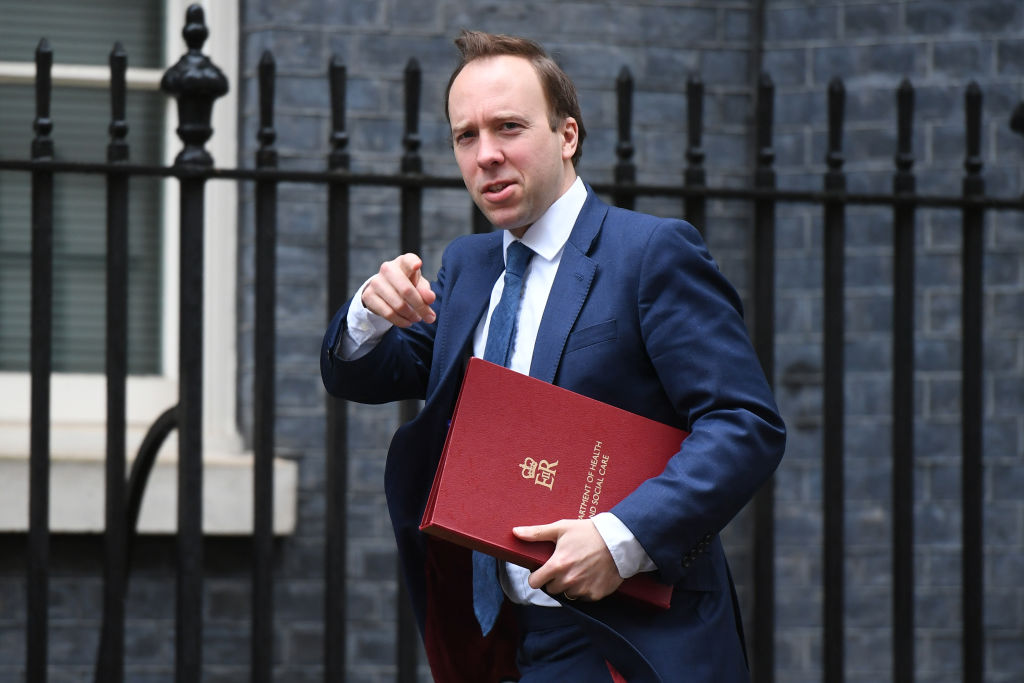As Matt Hancock was doing his media round this morning, it was refreshing to hear him finally being questioned about the challenge of false positives. But his response made me worry whether the Health Secretary really knows what a false positive is – or the potential extent of the problem when it comes to detecting coronavirus and the impact of that on decision making.
False positives happen when someone is incorrectly given a positive result for something which in fact they do not have. As I wrote in May, no matter how carefully designed, created or performed, no test is perfect. Each test is given a sensitivity rating (the ability of the test to detect people who have a virus) and specificity rating (the ability of the test to correctly identify that a person does not have a virus).
The manufacturers of the UK’s RT-PCR tests report that the specificity of those tests is around 99 per cent, meaning that up to one per cent of cases are false positives. Public Health England research suggests however this may be more like 95 per cent in reality.
When asked about this by Julia Hartley-Brewer, Hancock replied: ‘Under one per cent means that for all the positive cases the likelihood of one being a false positive is very small.’
But Hancock is wrong to dismiss this problem so lightly. Perhaps he simply misspoke or, perhaps more worryingly, does not actually understand simple statistics and probability.
Last week’s official data revealed that the UK has been processing around 220,000 tests a day, a significant increase on a month ago where the average was 170,000. Given one per cent of tests may return a false result, this means that 2,200 of reported Covid-19 ‘cases’ could in fact be false. This means 2,200 people – and their families – forced into isolation; their relatives unnecessarily worried; their workplaces forced to deep clean, or even shut.
The rolling average of reported daily cases is currently around 3,300, which would indicate that as many as up to two thirds of the reported case total could, in fact, actually be a testing error. This might lead to the perverse situation that if you test positive for Covid-19 you are actually more likely not to have the virus than have it, hardly the ‘very small’ likelihood the Health Secretary suggested.
So is the government listening to these growing calls to take the issue of false positives seriously? The Royal Statistical Society has warned the Government that:
‘Tests cause harm when they miss or wrongly diagnose cases. Our current tests have one and two per cent false positive rates – which, when millions are being tested every day, risks causing personal and economic harm to tens of thousands of people. This problem is exacerbated if the new tests, as is likely, are less accurate than the ones used currently.’
One way to guard against unnecessary panic and potential overreaction would be to test those with positive results again as it is very unlikely that someone would receive two false positive results (one in ten thousand chance). However when the Health Secretary was asked about this he was unable to say how many people receive two tests, only commenting that ‘we do do that sometimes’.
Given the scale of the problem, this is hardly reassuring and suggests a lack of awareness of this significant issue. With the ongoing shortage of testing capacity, it is also hard to see how the government will be able to adopt a two-test solution any time soon. In the mean time, more and more people will potentially get false results and the worry and panic that comes with this.
As testing volumes continue to increase, the role of false positives will naturally play an increasingly important role unless a test with significantly higher accuracy is developed. Even with the current challenges some people face in getting a single test, the government needs to urgently prioritise re-testing ‘positive’ Covid cases to weed out phantom cases. A failure to do so could inflict unnecessary damage, alarm and concern on a weary public and struggling businesses.






Comments